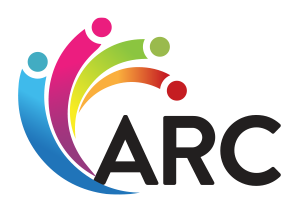Medicine
The Acute Medicine Units are located in the South Tower on level 6 and 7 - 6S100, 6S200 & 7S100, 7S200, however medicine patients may be located throughout all of our inpatient care areas. See our maps to Find Your Way.
In alignment with Joseph Brant Hospital’s CARE+ values of Compassion, Accountability, Respect and Excellence, the Acute Medicine Team's goal is to provide safe quality patient and family centred care, with a focus on exceeding expectations with patient and family experience. Our interdisciplinary, health care team uses collaborative evidence-based care to help you through your acute illness. We will do everything possible to meet your needs and help your transition back into the community, keeping you informed and involved in your plan of care.
We understand that being in hospital can be stressful time for you and your family. This information page will introduce you to members of your health care team. Please do not hesitate to ask us any questions, we are here to assist you.
Communications with the Health Care Team
Your health care team will consist of many of the professionals listed below and is customized to meet your care needs. The team will collaborate with you and your support persons to set goals and make a reasonable treatment plan for your admission. In addition, patient and family care conferences may be scheduled if required and/or requested to review your plan of care, including discharge planning. These meetings help to identify and discuss issues related to your progress and discharge plans.
If you have any questions about your care, please speak to a member of your healthcare team. They would be more than happy to assist. If you need to escalate any concerns to the unit manager, please do not hesitate to do so. Our unit manager's names and phone numbers are located on the white board in the patient rooms.
Who We Are and What We Do
An interdisciplinary healthcare team will work with you during your acute care stay. The Acute Medicine Team consists of:
- Charge Nurse and Team Leads manage patient flow, staff assignments, and acts as a resource to other members of the health care team. The Charge nurse and Team Leads conduct daily rounds daily with the multidiscilplinary team coordinating care and discharge planning.
- Dietitians will assess your unique nutritional needs and work with you to create an appropriate nutrition care plan and will also monitor your nutrition status. They will provide you and your family with any diet-related teaching you may require.
- Discharge Planners work collaboratively with patients, the multidisciplinary team, and Home & Community Care to coordinate transition from hospital to discharge destination.
- The Environmental Services Staff cleans and stocks the unit with supplies.
- Most Responsible Physician directs your medical care utilizing different specialized health team care members and is your primary doctor while you are in the hospital.
- The Nurses coordinate your daily care in collaboration with the rest of the health care team. They are specialized to take care of acute medical patients and are available to answer your questions.
- Occupational Therapists focus on improving quality of life and independence in daily activities. Each patient is assessed in the areas of self-care, transfers, mental processing and the need for assistive devices.
- Patient Navigators work collaboratively with patients, families and inter-professional teams to ensure efficient and coordinated care for the best patient experience and outcome.
- The Pharmacist makes sure that medications are safe and effective and provide information about medication when needed.
- Physiotherapists complete a detailed review of your mobility and your physical well-being. Based on this review, your individual treatment plan is established. The goals focus on increasing physical function and mobility.
- Respiratory Therapists assess and monitor the breathing needs of the patient.
- Social Workers provide you and your family with information about hospital and community resources and services. This may include information in the areas of advance directives, caregiver support, Power of Attorney and financial/legal needs. The social worker will also assist you with planning for discharge when your care needs can be met in a more appropriate community setting. They will also provide emotional support if required.
- Speech Language Pathologists (SLP) assess your swallowing and/or communication if concerns are identified by the team and make diet recommendations (fluids, food textures) to optimize safe feeding/swallowing strategies. Patient’s status will be monitored at regular intervals.
- Unit Clerk answers the telephone and provides clerical support to the health care team.
- Volunteers play an important role in our program. They help our therapists transfer patients to and from therapy sessions and may assist identified patients at meal times. For more information, please contact the nurse or dietitian.
Planning for Your Care
During your hospital stay, you’ll see a number of different health care professionals including doctors, nurses, home and community care support services coordinators, therapists, dietitians, social workers and volunteers. Your care team will support you in the hospital and assist with planning your return home.
Your doctors will develop a medical treatment plan and work with you, your family or caregivers and your care team to develop a complete care plan to meet your needs. Together, we will:
- Establish care goals.
- Make plans for when you can leave the hospital.
- Set an Estimated Discharge Date (EDD) so you can be ready for a viable discharge home.
Your care team will meet with you and/or your family/support persons within the first two days of your hospital stay to review your care plan and talk about any concerns you may have about the care plan and discharge home.
Preparing for Your Discharge (Leaving the Hospital)
Planning for Your Care Needs
Planning to leave the hospital begins soon after you are admitted to the hospital from the emergency department. You are considered for discharge when your health care team determines that you no longer need medical care at the hospital.
We know that preparing for discharge, either to your home or to another facility, can feel confusing and overwhelming, especially at the beginning of your care journey. Your care team will work with you, your family and/ caregiver(s) to provide the best plan possible for your safe transition from hospital.
How does discharge work at Joseph Brant Hospital?
After you are admitted to the hospital, your health care team will work in partnership with you to plan your care goals and plan for the day when you will leave the hospital. This is called your day of discharge.
Conversations about your discharge will take place soon after you are admitted. Knowing when you will leave the hospital can help you, your family and caregiver(s) plan ahead and explore your options. Your health care team can also arrange any follow-up care you may need in time for when you leave the hospital.
Sometimes patients may be transferred to a different unit or another site/hospital during their stay. This depends on your needs and where you can best receive the care you require.
Your health care team will keep you informed of any possible transfers. No matter which site/hospital you are transferred to, they will always help you prepare to leave the hospital.
The hospital discharge time is 1000. Please ensure you have arranged transportation and are ready to leave the hospital by this time on your date of discharge.
Where will I go after I’m discharged?
Going home is typically the first choice for patients. This is called the home first approach.
If you need care at home, Home and Community Care Support Services will talk to you about your care needs, while you are in the hospital, about the resources in the community that may be right for you. They may contact you virtually (by phone) or in person, depending on your situation. Ask your health care team for more information.
What do I need to do to prepare for discharge home?
Once you know your day of discharge, you need to arrange your own transportation home. If you need help, ask your health care team for a list of phone numbers for travel options, such as an ambulance, taxi or wheelchair accessible taxi.
Note: Joseph Brant Hospital does not pay for your transportation to leave the hospital.
Who do I contact if I have questions about leaving the hospital?
Speak with any member of your care team. They are here to support you.
What You Should Know About Your Hospital Stay
Parking passes are available at a reduced rate for family members or friends who come to the hospital to help with the daily care of a patient whose length of stay is greater than one (1) week. For more information, please visit the Parking & Directions page.
What to Bring to the Hospital
Clothing
- Supportive, non-slip shoes
- Undergarments
- Socks, (non-skid recommended)
- Sleepwear
- Loose fitting clothing - please label all clothing items to prevent any loss.
Personal Items
- Soap/Shampoo
- Toothbrush/toothpaste
- Hearing aids/ batteries
- Dentures
- Deodorant
- Hairbrush/comb
- Razor/shaving cream
- Cosmetics
- Eyeglasses
Joseph Brant Hospital is not responsible for lost or stolen items, including money, dentures, hearing-aids, glasses etc .
Medications
To provide complete and accurate treatment, it is important to bring a list of medication that you are currently taking including prescription drugs, non-prescription drugs and naturopathic or homeopathic remedies.
If you bring in your own medication, we will encourage you to send it home with a support person. You may ask for safe storage while in the hospital, however our storage space is very limited.
Contact Us:
Program Managers
7 S 100 and 200 -905-632-3737 ext. 8438
6 S 100 and 200 - 905-632-3737 ext. 2112
Program Director
905-632-3737 ext. 1355
Patient Information
905-632-3737
Medicine Unit Location:
6S100 & 6S200
Level 6, South Tower, 100 & 200 Wing
7S100 & 7S200
Level 7, South Tower, 100 & 200 Wing
Numbers
7 S 100 ext.41407 S 200 ext. 4141
6 S 100 ext. 4402
6 S 200 ext. 4413
Links
Numbers
6 S 100 and 200 905-632-3737 ext. 21127 S 100 and 200 905-632-3737 ext. 8438
Links
Numbers
Phone 905-632-3737 ext. 1355Links




Facebook
Twitter
YouTube
View Joseph Brant Hospital's Channel